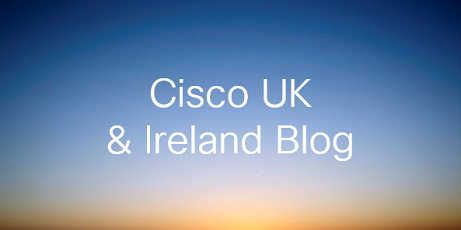
Tales from Wired Health, Part I
If you caught our recent report looking at the Internet of Everything (IoE), then you’ll already know about some of the incredible ways in which connected technology could transform healthcare experiences across the world in the years to come.
While the IoE will have an impact on multiple industries, healthcare is a particularly poignant example; it is after all, an industry that – at some point – we all have exposure to. Little wonder that we have such a fascination around any tech that could revolutionise the way healthcare is delivered.
How that technology is changing was the focus of Tuesday’s Wired Health event (for which Cisco was one of the partners), one that saw speakers, healthcare professionals and technology innovators descend on London’s Royal College of General Physicians.
Featuring a range of talks that covered areas ranging from wearable tech to body regeneration, a number of standing room-only sessions pulled in some of the brightest and boldest thinking redefining modern healthcare.
Here are some of our highlights from the morning’s sessions:
- Billy Boyle from Owlstone Nanotech talked the assembled audience through a product that can detect diseases through the chemical traces given off in our breath. Using a small sensor-based device, the technology could have a major impact on the way that major illnesses are detected and treated.
- Aston University’s Max Little, in a speech focused on Parkinson’s, implored the audience to remember that “we deserve to have our data collected, shared and analysed in the most sophisticated way possible.” He pointed to more efficient and powerful computing as the key to making that a reality.
- John Coates gave up a successful career as a Wall Street trader to study neuroscience. Now at the University of Cambridge, he investigates the psychological activity of traders and the consequent impact on their stress levels. “What generates the highest levels of stress is the uncertainty of something bad happening to you,” he said. “Just being in the presence of non-routine information can generate stress.
- Elli Kaplan of Neurotrack Technologies talked about the need to crowdsource a cure for Alzheimer’s. “Someone gets Alzheimer’s every six seconds,” she noted, “and by 2100 there will be 300 million sufferers. We need people to take our test and donate their data to help push us forwards.”
- In a brilliant and thought-provoking session, Tali Sharot from University College London discussed our “psychological immune system”. Human beings, she said, are very good at ignoring warnings, meaning that we tend not to listen to advice that we’re drinking or spending too much. Inversely, we’re very good at processing the idea that our future will be better – and so rewards, rather than warnings, are much better at preventing us from behaving badly.
There were too many great sessions to fit into a single blog, so we’ll be back tomorrow with more from Wired Health. Check out our Twitter and Instagram feeds for more in the meantime!
Tags:


